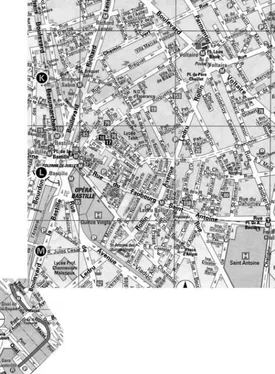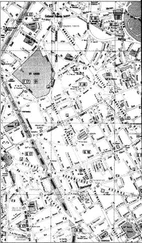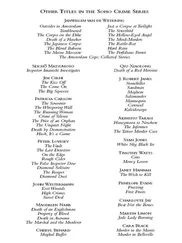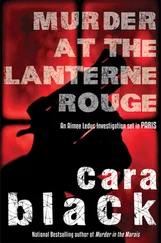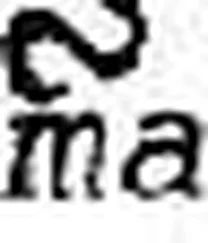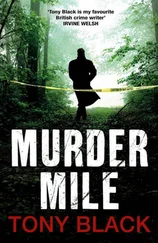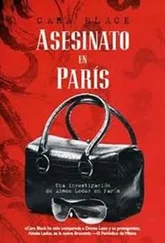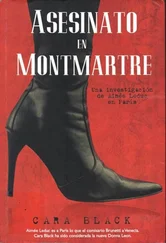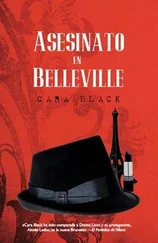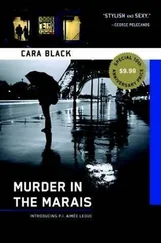VINCENT CSARDA WAS BORN on the wrong side of the blanket. He knew he wasn’t unique in that. A lot of the world was, and would continue to be. As a child, once a year at Christmas, his mother would take him for lunch with a “gentleman friend.” Always at the posh Ladurée, famous for thick hot chocolate, in Place de la Madeleine. This was all kept a secret from his stepfather, an injured tram conductor with a meager disability pension.
Vincent, scrubbed clean and wearing his best, had hated the long ride at the back of the bus on the outside platform. And his mother’s nervous picking of lint from his wool jacket. This “friend,” with his wiry, amber mustache and red watery eyes, would ceremoniously give Vincent a gift. Odd or old-fashioned toys. Once, a much-thumbed book about steam engines.
Vincent would thank him and spoon up the hot chocolate. “Growing a mustache?” the man would joke about the chocolate swipe on Vincent’s upper lip. Vincent would nod, aware of his mother’s scrutiny.
The gifts had sat in a pile in his armoire. One Christmas his mother told him they wouldn’t see the “friend” anymore but they mustn’t be sad. He’d taken care of Vincent. His mother had never told him outright, but from what she left unsaid, Vincent figured this man was his father and he’d died.
Later Vincent found out he’d inherited a lot of money from his mother’s “friend.” A natural in business and promotion, Vincent started his agence de publicité, expanded, and never looked back. His father hadn’t given him his name or birthright, but, as Vincent rationalized, something more important: the means to get it.
Vincent waved to his secretary, who applied makeup with a deft hand at her desk while talking on her speakerphone, indicating he needed five minutes. He shut the door of his Bastille office and checked his e-mail. Opened the one from “popstar.” The subject read “Marmalade tea.” The message:
Call 92 23 80 29 for a good time.
He wrote down the number on his palm. More secure. Then he deleted the e-mail. This was the last time. No more messages; he’d wash his hands of it now.
He adjusted the white dress shirt, spritzed Le Mâle by Gaultier, and checked for lint on his tailored black tuxedo, the trousers of which hid his platform shoes. He’d be going to the Bastille Opéra’s Salle de Reception later for a press conference launch. The Arsenal Pavillon might have been more chic. But Monsieur Malraux, the art appraiser, had offered his hôtel particulier, a detached mansion in the faubourg that carried cachet . And cachet counted with the gauche-caviar.
A SOFT, blurred blue shone from the high-paned windows overlooking the courtyard in the Faubourg Saint-Antoine. The pilasters and sculpted frieze on the façade reflected the glow. The bluish star Vega, in the Lyre constellation, hung in the sky. Inside, myriads of tiny blue lights blanketed the balustrades, giving a gleaming otherworldly luster to the foyer.
Blue like Diva , their new magazine. Perfect for the pre-launch gala, Vincent thought, tenting his fingers. A mix of elegance and freshness.
One of the Bourbon monarchs had installed his mistress, a well-known actress, here. The monarch built the petit théâtre, a gem complete with a foyer hung with Gobelin tapestries, for her performances. He liked to show her off to court intimates, to keep her happy. Rumor had it, he was so enamored of her that he had an underground passage to the Bastille dug to permit impromptu visits.
Vincent doubted that part of the story. Why hide a liaison? Few at court had.
The theatre, perfect for the pre-launch gala, had a gilded stage scalloped by cherubs under a painted ceiling. It seated 200 at most in the frayed maroon velvet seats. The theatre had an élan that money couldn’t buy. Vincent hungered for it. Something he’d wanted all his life . . . an entrée into a world that excluded him.
But not for long. He would obtain his backers’ and the arbiters of fashion’s approval at this pre-launch event for the élite of society.
Vincent lifted up the first issue of Diva , a glossy four-color magazine. On the cover were three Bastille divas representing tragedy, wisdom, and glamour. Martine’s first issue profiled women spearheading the arts; the designer Jean Paul Gaultier; and a ferment of young filmmakers, architects, installation artists, dancers, and singers in the “new” Opéra.
A winner. He felt it in his bones. A bit of flash, glamour, and luxe tempered by conscience; interviews with activists, writers, and the editors of the Cahiers du Cinéma . A smattering of locals as a guide to the branché clubs and bistros. A French rapper and a Chinese teahouse and its owner in the Arts et Chic section.
With the success of Diva Vincent would truly join the gauche-caviar . Not just pretend from the sidelines. Money did not guarantee entry; he had plenty of that. He needed the cachet of owning a politically conscious, avant-garde and quasi- intello fashion magazine.
A sprinkling of socialist ministers, human rights activists, prominent left-wing lawyers, trust fund hippies, and aristos glossed the guest list. Vincent noted every detail: the lobster and truffle hors d’oeuvres , bowls of glittering Petrossian caviar, the magnums of chilled Champagne, handmade chocolate favors shaped like the Bastille columns. No matter how polit- ically diverse the guests’ views, Vincent was savvy enough to know their preferences.
The best.
Like the Prime Minister or President, they might be very “left” but they dined on caviar. On a regular basis.
They would launch Diva for the public in a media circus at the Opéra’s Salle de Reception. Vincent knew Diva would shake the élite, the wannabes, the bon chic bon genre . . . but in a fresh way, the way they liked. And they would beg to be featured in it. The participation of the former editor of Madame Figaro guaranteed it.
“Monsieur Csarda?”
Vincent spun around. A waiter, his long white apron brushing his ankles, towered over him.
“ Oui? ”
No one crept up on him like that. Ever. He must focus, concentrate on the larger picture. Not become lost in minutiae.
“Pardon, monsieur, the organizer needs your approval for the orchids. A last minute change, only purple ones arrived.”
“Merci. ” Vincent smiled. He could afford to appear gracious.
By the time he resolved the crisis with the orchids— Malraux, the Bastille Opéra patron, detested purple—he realized Malraux was late. A no-show? Impossible . . . Malraux owed him. In more ways than he could repay.
Wednesday Noon
DOWNSTAIRS AT THE COMMISSARIAT, in sunlight dappled Place Léon Blum, Sergeant Loïc Bellan thumbed the fat Beast of Bastille dossier. As he had so many times. But this would be the final run-through. After this, he’d sign off on the compilation, then turn it over to the frigo , slang for the archives . . . to be frozen cold and deep in the police vault’s repository under the Seine.
Bellan hunched over the long wooden table in the deserted operations room. Outside in the square, named for the Socialist Prime Minister of France between world wars, early morning buses, taxis and bicycles passed the grilled windows.
Nearby, embedded in the pavement, were five stones which had once supported the wood scaffold of the guillotine. Lacenaire, the poet, had referred to them as the “flagstones of death.” Today they were part of the white-striped crosswalk pedestrians used daily.
Bellan knuckled down to what he did best, putting the perp under his own brand of microscope. Rereading and combing the information one more time, sifting the loose ends, arranging and rearranging items. Searching for loose threads and ways to knot them. Maybe then he could let go.
Читать дальше
